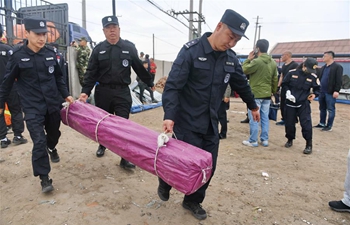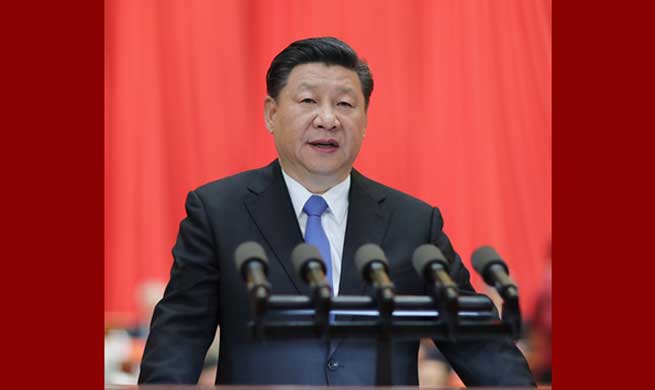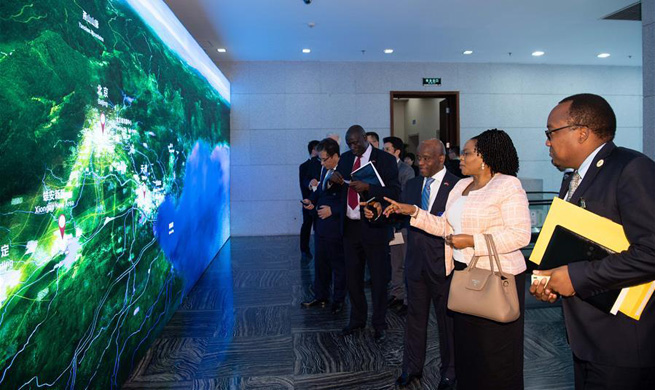by Xinhua Writers Jin Jing, Liu Xiang and Wang Tengfei
VIENNA, May 28 (Xinhua) -- China on Monday welcomed all member states of the United Nations to jointly utilize its future China Space Station (CSS), a move further demonstrates China's unwavering belief that outer space is a common home for all humanity rather than a new battlefield.
All countries, regardless of their sizes and levels of development, were invited to explore their cooperation with China aboard the CSS ranging from growth of a space plant to accommodation of an astronaut, said Shi Zhongjun, China's ambassador to UN and other international organizations in Vienna.
The announcement was more than a friendly gesture. It is the strongest message so far against the worrying rhetoric that outer space is a new front line for competition and confrontation.
China's exploration into outer space has been at the core of global attention since the launch of the first Chinese satellite in 1970.
Following the launch of space laboratory, Tiangong-1, in 2011, the CSS is expected to be launched by 2019, and brought into operation by 2022. It will be the world's first space station that is developed by a developing country and open for cooperation with all UN member states.
China's peaceful commitment to outer space has always been crystal clear and consistent.
Yang Liwei, China's first "taikonaut," exhibited the UN flag to the whole world on China's first space safari in 2003.
A white paper published in 2016 stated that China adheres to the principle of using outer space for peaceful purposes, and opposes the weaponization of or an arms race in outer space. The core module of the CSS is named Tianhe, or "Harmony of the Heavens" in the Chinese language, which conveys China's sincere hope to promote mutual trust and peace through cooperation aboard the CSS.
In a most indisputable move, China sealed a partnership with the UN Office for Outer Space Affairs in 2016 to offer its space-related technological and innovative skills and experiences to allow UN member states, in particular developing countries, an "Access to Space" to address all 17 Sustainable Development Goals.
Guided by the idea of a shared future for humankind, China considers its space dream to be a part of the dream of all humankind, and the CSS, therefore, a common home in space for everyone. Just as the Outer Space Treaty of 1967 proclaimed, the exploration and use of outer space shall be a common province for humankind.
In a broader sense, Monday's announcement is a hearty message sent across the globe that China remains committed to tackling global challenges through cooperation rather than confrontation.
Take the invitation and take off with the CSS. China's peaceful development and its call to build "a community of shared future for mankind" will make it easier for a more secure world to take root.

















